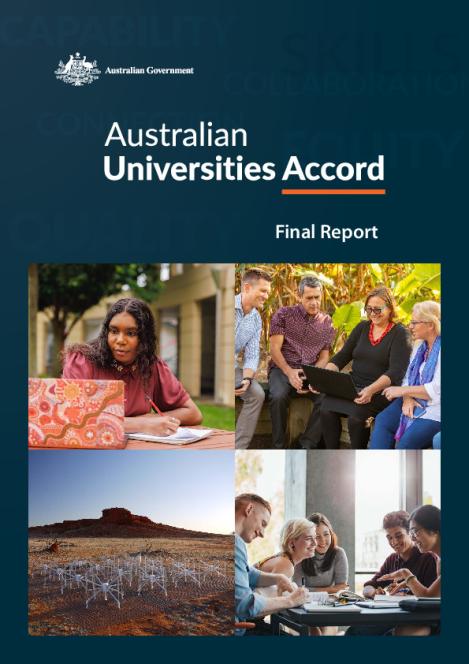 |
| Australian Universities Accord Final Report, 25 February 2024 |
Much of the report is irrelevant to my recent experience of being a university, and TAFE, student. I did undertake a half semester on campus, but the rest of my studies were online. At one stage I was enrolled in three institutions at the same time. The fact that my university was in another state, or another country, made very little difference to my student experience. What mattered to me as a student was what credit I would get between systems.
With increasing number of students undertaking micro-credentials, and other sub-degree programs, involving multiple institutions, I suggest more attention needs to be given to the administrative burden for government staff, institutions, and the students. When I attempted cross institutional enrollment in a course, I could not find any way to complete the required paperwork (each institution required me to get permission from the other first). The prospect of registering with the Australian government for student support for just a couple of courses was too daunting, so I paid the course fees with my credit card. Similarly, when enrolling as a TAFE student at the same time, I simply paid directly. As an international online student, I avoided any government paperwork, paying fees directly by credit card (the fees were lower than I had paid for similar courses as a domestic Australian student).
Some initiatives worth expanding did not get a mention in the report. One of these is Open Universities Australia, where institutions (not all universities) cooperate to provide flexible online education. Learning hubs in outer suburbs of cities, as well as regional areas, might be set up under a similar shared scheme.
Some initiatives worth expanding did not get a mention in the report. One of these is Open Universities Australia, where institutions (not all universities) cooperate to provide flexible online education. Learning hubs in outer suburbs of cities, as well as regional areas, might be set up under a similar shared scheme.
The Panel has made useful recommendations about Work Integrated Learning (WIL). However, what is lacking in this and several other areas are academic staff who are qualified to teach these subjects. The major challenge is to either implement mandatory requirements requiring academics to be qualified to teach using these techniques, incentives to encourage them, or both.
No comments:
Post a Comment